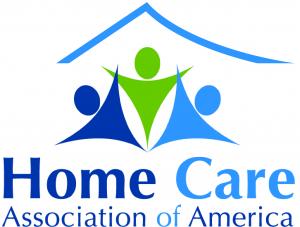U.S. DOL Halts Enforcement of Home Care Companionship Exemption While Awaiting Proposed Rule to Restore Exemption
WASHINGTON, DC, UNITED STATES, July 29, 2025 /EINPresswire.com/ -- The U.S. Department of Labor (DOL) announced that it has ceased the enforcement of the current companionship exemption rule issued in 2013 while it awaits the finalization of its proposed a rule that restores the longstanding companionship exemption under the Fair Labor Standards Act (FLSA) for third-party employers in the home care industry.
DOL’s decision is a critical step toward rebuilding a stable, sustainable, and person-centered system of care that allows older adults and individuals with disabilities to remain at home. It reestablishes flexibility in how home care is delivered while continuing to protect the rights of workers. In doing so, it acknowledges the unique nature of companionship services: non-medical assistance that supports independence, preserves dignity, and avoids institutionalization.
The Home Care Association of America (HCAOA) had consistently advocated in support of reinstating the companionship exemption. By halting the enforcement of the current rule and proposing a rule that would restore the companionship exemption, the DOL appropriately reverses a policy that has disrupted continuity of care, made it harder for Americans to age at home, increased caregiver turnover, and driven up costs for providers operating under fixed Medicaid and VA reimbursement rates. The 2013 rule discouraged live-in care, fragmented the workforce, and left families with fewer reliable options.
“HCAOA applauds the Department of Labor’s recognition of the vital role of home care and its caregivers by reinstating the companionship exemption,” said Jason Lee, CEO of HCAOA. “At a time of severe workforce shortages across the home care sector, we should be doing everything we can to support and retain dedicated caregivers to ensure that we can provide essential services for older adults and other individuals needing care at home. The Department of Labor’s decision supports this goal by removing unnecessary restrictions and allowing caregivers to work as much as they are willing and able.”
Reinstating the exemption for third-party employers will:
- Allow caregivers to provide consistent, extended support without arbitrary hour caps;
- Improve care continuity, especially for clients with dementia or round-the-clock needs;
- Reduce staffing disruptions caused by compliance-mandated shift changes;
- Restore stability to a sector heavily reliant on flexible scheduling;
- Support family caregivers, particularly in self-directed and Medicaid-funded programs; and
- Empower caregivers with greater control over their schedules and assignments.
DOL’s decision is a critical step toward rebuilding a stable, sustainable, and person-centered system of care that allows older adults and individuals with disabilities to remain at home. It reestablishes flexibility in how home care is delivered while continuing to protect the rights of workers. In doing so, it acknowledges the unique nature of companionship services: non-medical assistance that supports independence, preserves dignity, and avoids institutionalization.
The Home Care Association of America (HCAOA) had consistently advocated in support of reinstating the companionship exemption. By halting the enforcement of the current rule and proposing a rule that would restore the companionship exemption, the DOL appropriately reverses a policy that has disrupted continuity of care, made it harder for Americans to age at home, increased caregiver turnover, and driven up costs for providers operating under fixed Medicaid and VA reimbursement rates. The 2013 rule discouraged live-in care, fragmented the workforce, and left families with fewer reliable options.
“HCAOA applauds the Department of Labor’s recognition of the vital role of home care and its caregivers by reinstating the companionship exemption,” said Jason Lee, CEO of HCAOA. “At a time of severe workforce shortages across the home care sector, we should be doing everything we can to support and retain dedicated caregivers to ensure that we can provide essential services for older adults and other individuals needing care at home. The Department of Labor’s decision supports this goal by removing unnecessary restrictions and allowing caregivers to work as much as they are willing and able.”
Reinstating the exemption for third-party employers will:
- Allow caregivers to provide consistent, extended support without arbitrary hour caps;
- Improve care continuity, especially for clients with dementia or round-the-clock needs;
- Reduce staffing disruptions caused by compliance-mandated shift changes;
- Restore stability to a sector heavily reliant on flexible scheduling;
- Support family caregivers, particularly in self-directed and Medicaid-funded programs; and
- Empower caregivers with greater control over their schedules and assignments.
Eric Reinarman
Home Care Association of America
eric@hcaoa.org
Legal Disclaimer:
EIN Presswire provides this news content "as is" without warranty of any kind. We do not accept any responsibility or liability for the accuracy, content, images, videos, licenses, completeness, legality, or reliability of the information contained in this article. If you have any complaints or copyright issues related to this article, kindly contact the author above.

